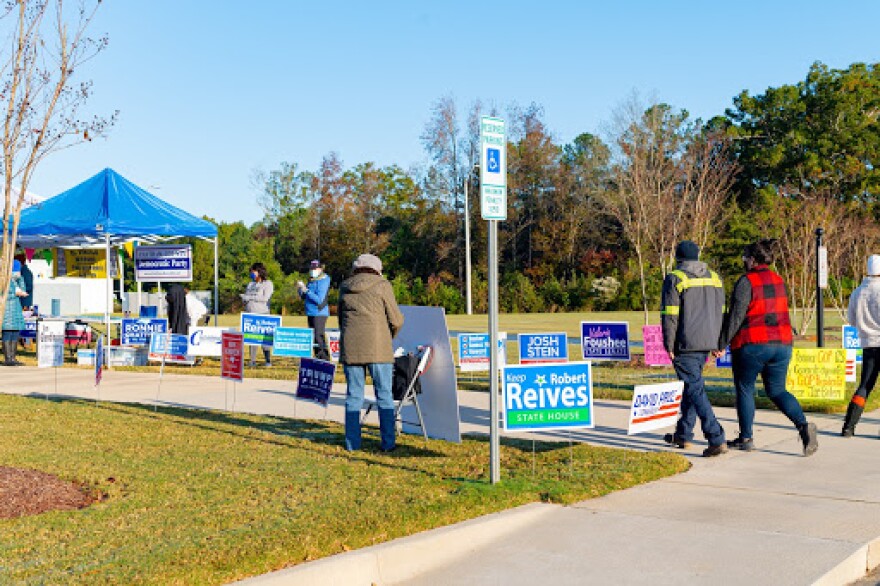About three dozen municipalities — Charlotte and Greensboro among them — would see scheduled fall elections moved to early next year in legislation approved unanimously by the House on Wednesday that anticipates delayed redistricting.
These are municipalities with residents separated into wards or districts who elect specific council members. The towns and cities won't have time to redraw those boundaries to reflect population changes reported by the 2020 Census because the data won’t be ready until late summer or early fall.
The bill says these municipalities would have elections on March 8, 2022, which is also the date for state and federal primaries. Some municipalities also would have additional elections in April or May. These communities would have the option to hold elections in 2021 for at-large offices like mayor if they wish. All of these towns and cities still would have to complete their redistricting by late fall.
Raleigh would be one of the municipalities subject to the delay, but House members instead approved an amendment to follow the wishes of city leaders by moving this year's elections to November 2022 — then let them stick to even-numbered years thereafter. The Charlotte-Mecklenburg and Lexington schools boards also would move their 2021 elections to November 2022, but that change would not be permanent.
If lawmakers approve the change, current Raleigh City Council members would see their terms extended by an extra year. Council member David Cox objects to the move.
“One of the things I'm concerned about is that when we were elected in 2019, the expectation was that we would serve a two-year term,” Cox said. “And I kind of view that as a social contract with the with the public. And and I'm concerned about extending our term, literally an entire year.”
City attorney Robin Tatum laid out the council's options.
“The dilemma is we can't hold a constitutional election unless we move the lines,” Tatum said. “We can't move the lines without the data. We don't have that data. So the other dilemma is as the law is now written, we cannot unilaterally change the election date that has to be done by the General Assembly.”
Currently, candidates who want to run for office in Raleigh are due to file in July, but the Census data needed to draw district boundaries now isn't expected until late September.
A version of the bill passed the Senate last week. The Senate now must decide whether to accept the House changes in the bill, which would go to Gov. Roy Cooper's desk if given final approval.







